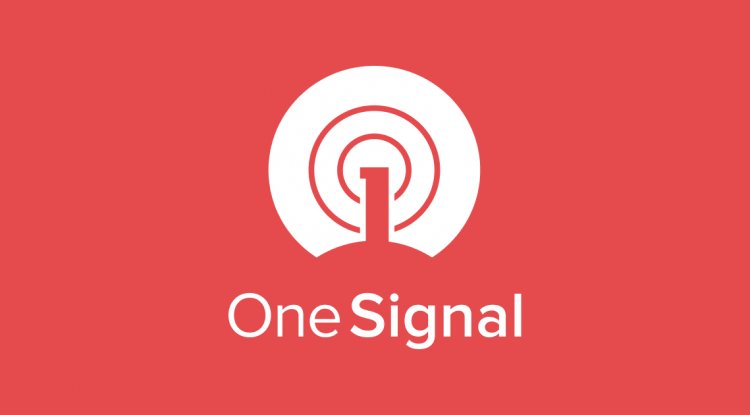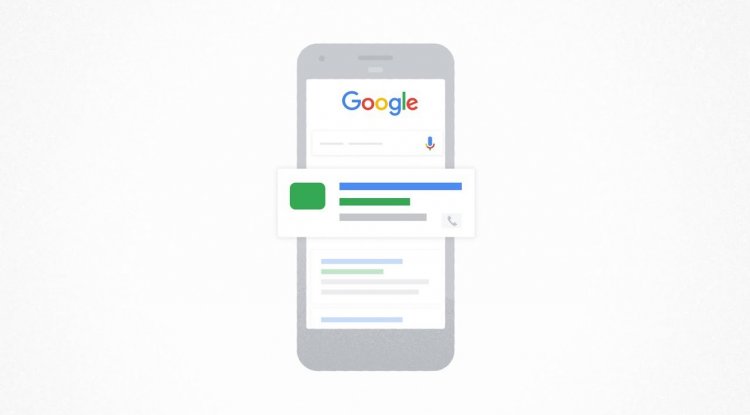'All of Us Strangers' is a gift to queer Gen Xers
Meet some ghosts who haunt and heal in Andrew Haigh's "All of Us Strangers," a gift to queer Gen Xers.


As Generation X and elder millennials are tramping into middle age, we look back on our youth achingly aware of how fast some things change. This is particularly true for queer folks in these groups. All of Us Strangers uniquely speaks to this experience through a ghost story that offers humor, heartbreak, and an unapologetic horniness in leading men Paul Mescal and Andrew Scott. But beyond their tear-jerking romance, writer/director Andrew Haigh's adaptation of Taichi Yamada's novel Strangers offers a gift to generations of queer people who grew up in the shadow of the AIDS crisis and so found coming out to our parents difficult, if not impossible.
Set in modern-day England, All of Us Strangers stars Andrew Scott as Adam, a screenwriter who is looking back at his youth for inspiration. Specifically, he focuses on the days before his parents died in a car accident when he was 11 years old. His research includes a journey to his childhood home, which seems to resurrect the ghosts of his parents preserved in that house like mosquitoes in amber.
From there, he gets to know Mum (Claire Foy) and Dad (Jamie Bell) as grown-ups, and they get to know him. And a major part of this exchange is his parents — who remain as they were in the 1980s — realizing that their son is "homosexual."
It's a journey studded with hurt, but its destination is a place many of us aspire to reach.
How does All of Us Strangers handle coming out?

As Mum and Dad died before Adam's 12th birthday, this child of the '80s didn't come out to them while they lived — yet there's a sense they know. Upon the family's initial supernatural reunion, queer audiences will recognize some code words in their reminiscing. Mum notes, "You've always been a sensitive boy," evoking the phrase so many parents of that time used to avoid using words like "gay." But when Adam returns later and talks to her alone, she brightly asks if he has a girlfriend. The conversation quickly goes downhill from there.
Adam takes the opportunity to say it outright: "I don't have a girlfriend because I'm not into girls, into women…I'm gay." His mother, previously full of warmth and smiles, is now fidgety and perturbed. She utters phrases that sting queer ears with their familiarity, asking for how long he's been that way and insisting, "You don't look gay." (Adam replies kindly, "I don’t know what that means.") With a sharp tone, she asks if he wants to be married and then huffs over the very idea, "Isn’t that like having your cake and eating it?" She also trots out the age-old fear tactic: "They say it's a very lonely kind of life."
"They don't say that anymore," Adam says, visibly annoyed but trying to comfort her as she practically shrieks over AIDs without even saying the word, referring to "this awful ghastly disease." Adam gently but firmly defends himself, but he's wounded. Especially when he asks if she'd ever suspected, and she answers, "What parent wants to think that about their child? No parent I know."
It's not the last thing she'll say, but it's among the most cutting. He’s visibly shaken by his mother's fear. Then, she practically kicks him out of the house, but not before offering him some flapjacks to go. She is still his Mum after all, can't let him go hungry.
Dad jokes and gender norms trip up Adam.

Next comes Dad, who’s already been told by Mum. So when Adam visits again, his father is ready, offering dad jokes about how he always knew the boy was "a bit tooty fruity" because he "couldn't throw a ball for shit."
But their heart-to-heart gets serious when Dad admits he figured Adam was being bullied because he could hear the boy cry in his room after school. After 30 years, Adam tells his father about the abuse he endured in school for being the "sensitive" boy. And he challenges Dad, "Why didn’t you come into my room if you heard me crying?"
Andrew Scott's delivery of this line is edged with anger, though his voice is soft. There's a raw need just below his calm surface, begging to understand and to be understood by the father who made him self-conscious about his masculinity, chiding him to not "cross his legs like a lady" when he sits down.
Enforcing such gender norms may have seemed minor or helpful to our parents, but many LGBTQ people can recall the jolt of crossing a line they didn't know existed. The confusion it sparked could fester into shame and self-loathing for failing to fit in the box our parents put before us. And in this conversation, the surge of those feelings comes back for Adam and for us.
Then comes a moment shocking in its simplicity. Dad drops the jokes that are his shield against emotional honesty and says, "I didn’t want to think of you as the kind of boy that other lads picked on. I knew that if I was at your school, I’d have probably picked on you too."
It's a shocking revelation. Yet Jamie Bell delivers these lines not with disgust or scorn but a casual resignation, as if this father is realizing the truth as he says it. As their conversation continues, the recognition of how he failed his son weighs on him, literally dragging him down into the pose of The Thinker. Adam tries to comfort him, by recalling "good memories too." But Dad tears up, offering, "I’m sorry I never came into your room when I heard you crying."
How many of us get to experience this moment in real life? This emotional honesty from a parent, recognizing where they failed us? Some parents may take years to reach such an epiphany. Some die first. Dad did. And yet Adam is gifted solace, which he shares with us. When Dad asks for a hug — the same man who earlier chided affection between father and son as "poofy" — we can practically feel the warmth of that embrace.
All of Us Strangers offers forgiveness.

Mum's apology will come on their next visit, when the family decorates the Christmas tree like they did on their last night living together. They listen to the Pet Shop Boys' cover of "Always on My Mind," and Mum sings along, looking meaningfully at Adam.
"And maybe I didn't hold you / All those lonely, lonely times / And I guess I never told you / I’m so happy that you're mine / If I made you feel second best / I’m so sorry I was blind..."
Without a word, he forgives her. That night, he will curl into their bed as if he is 11 again, adored and accepted. But this time, they know who he is. Not just gay, but grown and lonely and creative and sensitive and forgiving. And through these visits, he knows them not just as Dad and Mum but as grown-ups just as complicated and confused and flawed as he is. But this is not their ending.
All of Us Strangers offers a farewell to remember.

Realizing their time together is coming to a close, Andrew’s parents say the things we yearn to hear. In their final visit, they urge him to pursue love. But moreover, Dad proclaims, "I will say that getting to know you has made us very proud...You've got through it, some very tough times, I'm sure. And you're still here. That’s what we're proud of."
Adam is not a massive success in his career. He doesn't have a spouse and kids and a big house in the suburbs. He hasn't achieved the perfect picture his suburban parents had in mind for him. But he's still standing. His parents see him now, and they love him in his imperfection, in his incompleteness, in his figuring it out. This might be the kind of proclamation some straight dads can only have on their deathbed. Here, it's had in a tacky America-themed restaurant. And yet it is perfectly cathartic. We cry with Adam as his parents fade away, not only because they're gone but because we got to know them and see them know him. It's a treasure that feels like it is ours too.
Admittedly, this is only half of the story in All of Us Strangers. The other half is the electrifying love story between Adam and his younger, lusty neighbor Harry (a scorching Paul Mescal). But one informs the other. Now able to believe his parents know and love him, he is ready to open himself to the love of another without reservation. But no love is perfect; all relationships are messy. I could go on for another thousand words about the thrills of this particular gay love story. ("I found you!") But maybe even more than queer audiences yearn for a sexy romance between Mescal and Scott, we year for the catharsis this film's bittersweet final act offers.

All of Us Strangers feels deeply personal in every moment. Scott plays the part of Adam shorn of the cocky bravado he had as Fleabag's Hot Priest or as Sherlock's menacing Moriarty. He's so nakedly vulnerable onscreen that it feels almost rude to watch him here. Haigh's own experiences not only breathe life into the domestic dialogue, but he even shot the film in his actual childhood home. Perhaps that adds to the magic of those scenes with Dad and Mum.
Overall, the arc from queer-coded words to coming out to hurt and healing is extraordinary in All of Us Strangers. Andrew Scott and Andrew Haigh take us by the hand and guide us through the hard moments, the cutting dad jokes, and beyond — to a parent recognizing their own fallibility. The apologies that follow may seem insufficient if you explained it to a friend over brunch. But in that moment, in that song, in that hug, you know you're speaking the same language. It's as real and undeniable as the blood you share.
Some of us don't get this far with our parents, or if we do, it takes years or even decades. All of Us Strangers gives us this journey through a handful of visits and under two hours. The agony and ecstasy of it hits with equal measure. So, even though its ending may not be straightforwardly happy, it feels like a glorious queer victory.
What's Your Reaction?





















